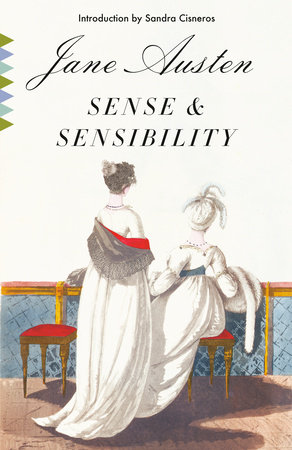
Austen made a highly realistic discussion of women’s issues at that time. She examines the heroines in the patriarchal society at that time. In that society, the value of a person is based on the ownership of property. Since generations of property went to male heirs, they were at a disadvantage from the start and could only be subordinated to men. As a result, these types of characters appear again and again in Austen’s writings: the assertive father; a mother who is obsessed with her social status and does everything possible to marry off her daughter, well-equipped young men, whose cynicism reflects their superior social position, and marriageable daughters, from the elegant headless girl to the sensible or emotional young woman.
How can a heroine achieve personal happiness through marriage in such a stern, demanding and often hostile world? Austen’s admonition was to use reason to control emotion She argues that emotions are often a dangerous guide to female behaviour. If a man of superior condition, but not of unrequited affections, is to be wooed, the consequences are often disastrous. Either because of his personal preference or because of parental disapproval, the man chooses a better match. These views of Austen are most evident in this first novel. The whole beginning of Sense and Sensibility revolved around the question of fortune in Dashwood’s will, and the want of avarice of Mrs. John Dashwood, who had an annual income of ten thousand pounds.
In the process of dividing up the estate, Austen makes no bones about the opposite characteristics of the two Dashwood sisters. Elinor was a very sensible, calm woman who, though only nineteen, was a good mother’s adviser. She was wonderfully kind and affectionate, but she knew how to hold back her feelings. It was a subject which her mother had yet to learn, and which one of her sisters had stubbornly refused to learn. Her sister Marianne’s talent was in many respects equal to her sister’s. She was inordinate in sorrow or joy. All is well but no discretion. That is to say, Marianne allowed her feelings to dominate her actions, while Elinor would not be swayed by such impulses.
Austen’s intention is very clear. She simply changed the original title of Elinor and Marianne to Sense and Sensibility to emphasize her theme. In this book, Austen shows the contrast between the characters of the two sisters. She narrates most of the stories from the perspective of Elinor’s outlook on life, ethics and social society, thus shaping a reasonable mortal. This is her ideal woman. When they learned that Willoughby had made full use of his superior social position, played with Marianne’s earnest love, abandoned the poor girl Eliza, and finally married the rich Miss Gray, Marianne was fully convinced of her folly, and her mother admitted that her admiration of Willoughby had been imprudent. Reason thus prevailed in both sisters. Austen arranged a happy ending for them. The book begins with comedy, and there is a disturbance in the middle. Marian almost becomes a tragedy, which ends in comedy.
